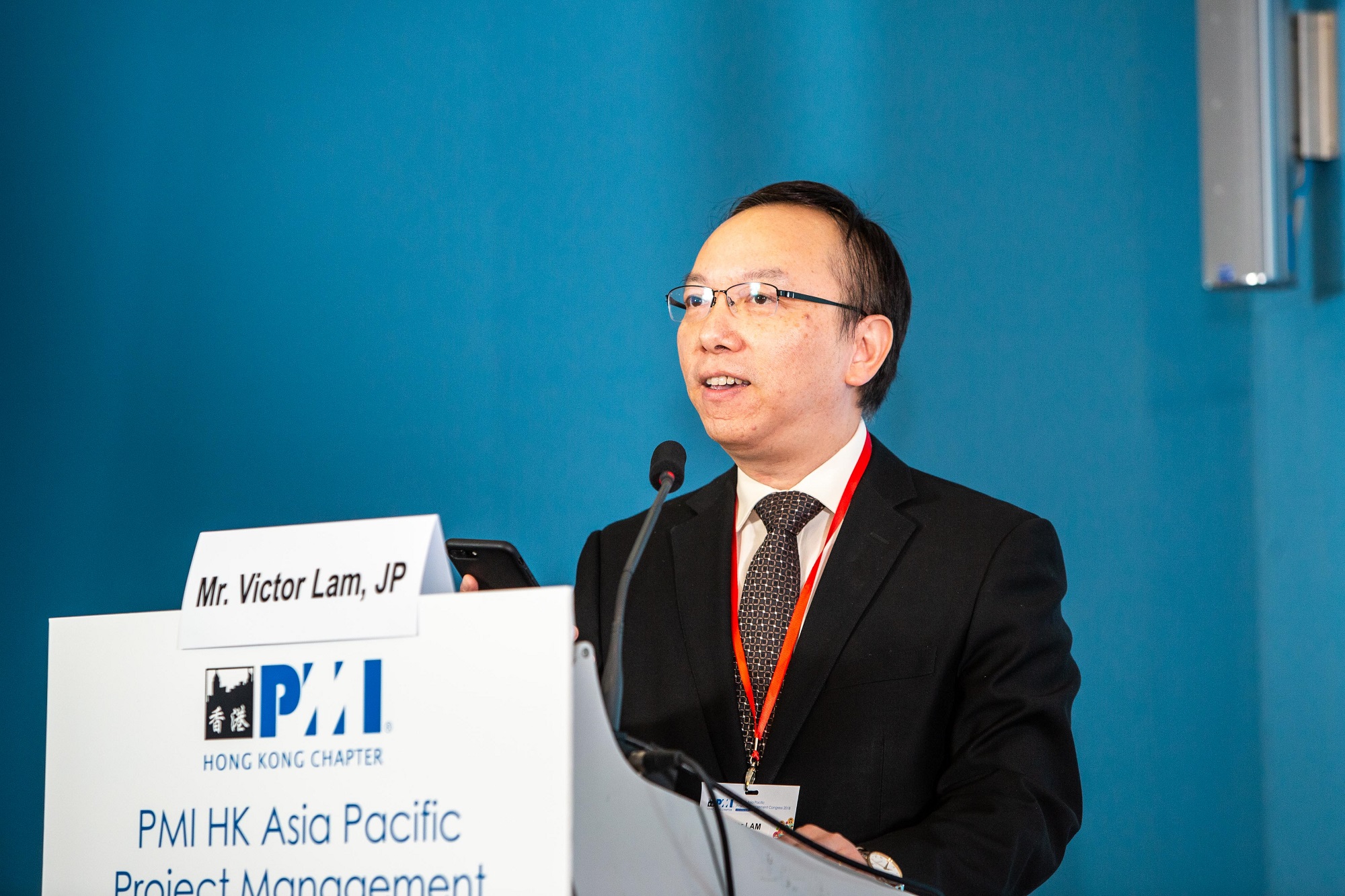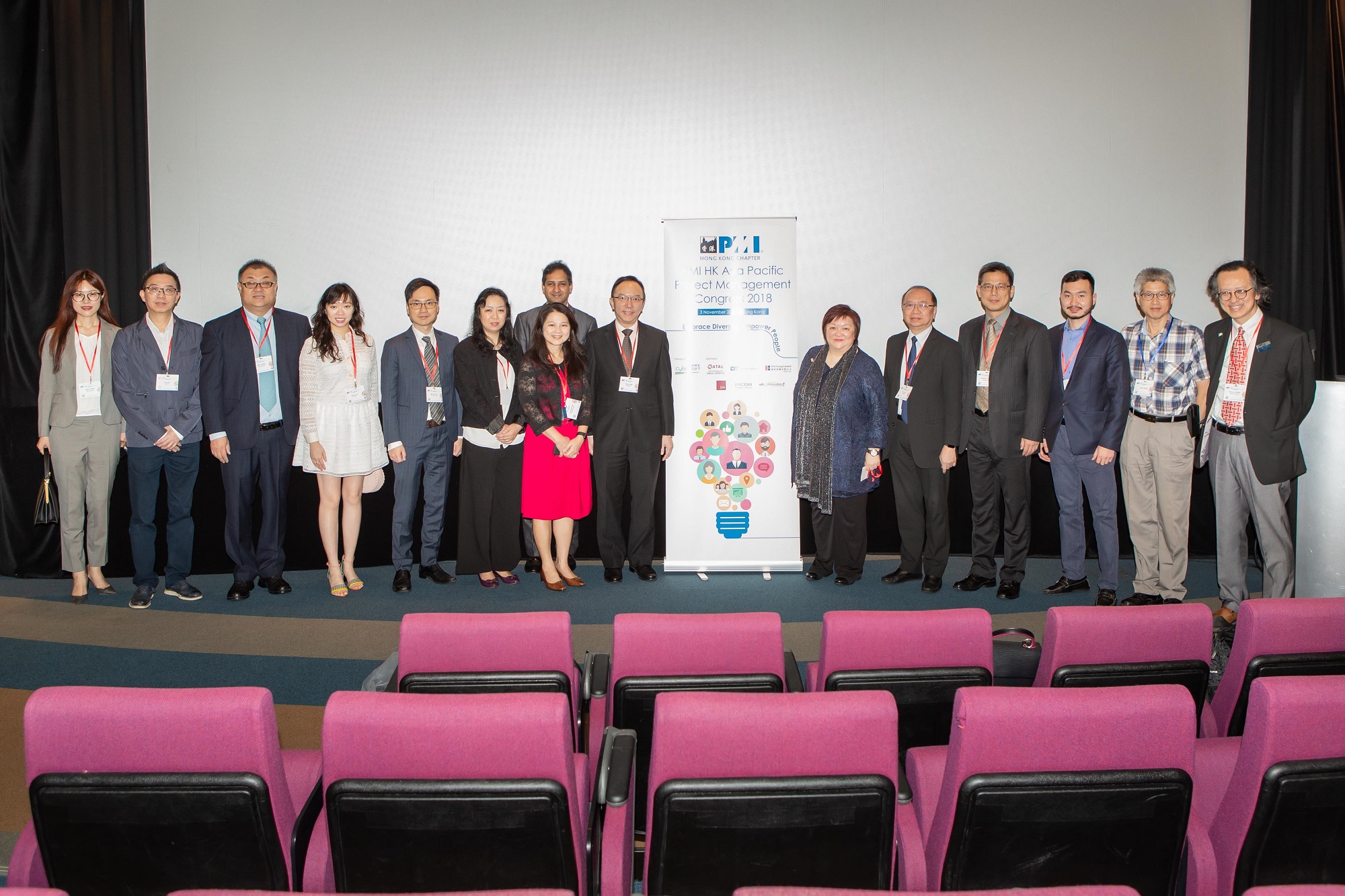Opening Speech by Mr. Victor Lam, JP, Government Chief Information Officer, at the “Project Management Institute (PMI) Hong Kong Asia Pacific Project Management Congress 2018” (with photos)
Rossana (Mrs Rossana HO, President, PMI HK Chapter), Danny (Mr Danny CHUNG, Chair of PMI HK Congress 2018 Organising Committee), Distinguished Guests, Ladies and Gentlemen,
Good morning! It is my honour to join our project management professionals from different sectors and from all around the world at the PMI Hong Kong Asia Pacific Project Management Congress 2018 today. I would like to thank PMI Hong Kong Chapter for inviting me to this annual signature event.
The fast changing environment brings challenges and opportunities to all of us. To sustain our success in the past, it is essential for us to embrace people with a diversity of background, harness their unique experience and wisdom, and empower them to innovate and unleash their full potential. Today’s theme, “Embrace Diversity, Empower People”, is very relevant to this end. It also underpins the Government’s efforts in developing innovation and technology in Hong Kong, and in building Hong Kong into a smarter city. Let me share with you some of our work to illustrate my point.
The Government released the Smart City Blueprint for Hong Kong in last December. With the collective wisdom of the industry, the academia, members of the public and government departments, the Blueprint mapped out over 70 short, medium and long term initiatives and measures covering almost every facet of daily lives that the Government has committed to take forward.
Among these initiatives, three key infrastructure projects, namely, an Electronic Identity (eID) for residents, multi-functional smart lampposts and a revamped government cloud infrastructure with a new big data analytics platform are being vigorously pursued by my office.
The eID project targets to provide all residents with a single and secure digital identity free-of-charge for authentication when conducting online services for both government and commercial transactions. Essentially, eID will become a key digital infrastructure for digital government transformation, enabling our people to access to all digital government services as well as commercial e-services through a single, simple-to-use, secure and personalised interface.
To tackle challenges of the eID project, we adopt modular design to build an infrastructure with higher flexibility and security. Through prioritisation of the e-services to be rolled out, we can achieve quick wins that provide maximum benefits to citizens. We adopt agile development and design thinking to ensure that eID is as easy to use as commercial services, and on the other hand, the most trustworthy and secure application in town.
We are now going full steam ahead to roll out eID in mid-2020. The Government will take the lead to adopt eID in all public services, but to fully realise the benefits of eID, we also need strong support from the private sector. We will actively promote eID to the private sector to spur more innovative digital services and streamline business processes, thus bringing further convenience to our citizens.
On big data development, we have set up a one-stop portal for open data, namely, “data.gov.hk” for public access. Though the portal, we make available machine readable datasets and application programming interfaces (APIs) to facilitate application of the open data across public and private sectors. Standardisation of the data format and application interfaces is the key to project success. It also requires close collaboration among government departments, public and private sectors.
To further expand the coverage of our open data platform with more real-time city data to facilitate better city management, we will progressively install about 400 multi-functional smart lampposts starting from mid-2019 in four busy districts. Through sensors and Internet of Things (IoT) devices installed on the smart lampposts, we can capture traffic, weather, air quality and other city data at the district level. By implementing a data super-highway, sharing and analysis of these data will be done instantly and the data can also be released for free on our open data portal to provide raw materials for the industry to develop innovative mobile apps.
The smart lamppost is certainly not a conventional IT project. It involves a lot of challenges in coordination among various stakeholders, such as data users, IT experts, works departments, as well as District Councils for consulting the general public, in the course of carrying out the civil works, IT technical design and system integration, as well as tasks scheduling and stakeholder engagement at various stages. I am sure project management experts of today’s Congress will echo the complexities in managing this unconventional project.
The development of smart city is a global race. Governments around the world are working hard to build an advanced, efficient, competitive yet sustainable city. This marathon will need the active participation and empowerment of all sectors of the community.
With Hong Kong’s unique edges, the Government’s commitment, and the concerted effort of the community, including all the bright minds present at this Congress, I have every confidence that we will make good progress in developing Hong Kong into a world-famed smart city. I look forward to the inspirational speeches and brilliant ideas from our distinguished speakers. I wish to conclude my speech with a final message: “Unity in Diversity”. Even though we are coming from diverse backgrounds and cultures, we unite here as project management professionals. Together, let’s make Hong Kong and the world a smarter and better place for all of us to live and work.
I wish the Congress every success, and all participants a very rewarding day. Thank you!
- ENDS -





